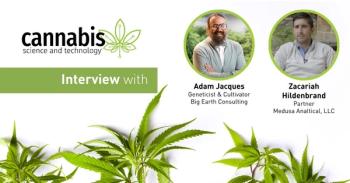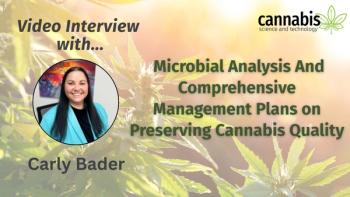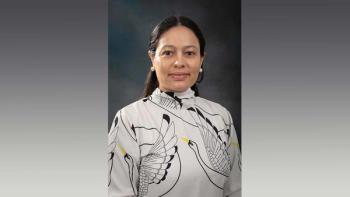
Cannabis Science and Technology
- Higher Education: Academic Perspectives on Cannabis
- Pages: 15-17
Growing Opportunities: A Look Inside Saint Louis University's Cannabis Science and Operations Program

To date, many US states permit cannabis use in some form. As cannabis continues to become more prevalent in the country, cannabis courses in higher education institutions are also becoming more common—and necessary in order to meet the need for educated professionals in this expanding industry. One notable institution offering cannabis education courses in a state with relatively new cannabis laws is Saint Louis University (SLU) in Missouri. SLU offers a Certificate in Cannabis Science and Operations, earned through online courses on various topics in the cannabis industry, from cultivation and manufacturing to dispensary ownership and pharmacological properties. In this interview, Stacy Godlewski, director of Saint Louis University’s Cannabis Science and Operations program, shares insights into how the program prepares its students for successful careers in various areas of cannabis business.
How did you become the director of Saint Louis University’s Undergraduate Certificate of Cannabis Science and Operations program? What is your own experience in the cannabis industry?
Stacy Godlewski: I earned my master’s degree from SLU in Higher Education Administration and have overseen a few programs at the university. My personal experience with the cannabis industry began with cannabidiol (CBD) for my elderly dog who had anxiety. CBD was not well known at the time, so I did my own extensive research and talked with experts who taught me about the usage of CBD not only for my pet but for my family as well. The combination of my professional experience in higher education and what I learned from my own research has allowed me a unique understanding of this industry from an educational perspective.
What led to the starting of the program and how has it evolved?
Godlewski: SLU’s program was the first of its kind in St. Louis. In 2018, BeLeaf, a well-known cultivator, manufacturer, and advocate in the St. Louis area was aware of our online programming and the success we recently had with a new craft brewing program. Since Missouri was about to go medically legal, there was a need to provide education to the industry’s emerging workforce. University leadership worked with the BeLeaf team to determine the educational plan that would best prepare students to join the cannabis industry.
Can you tell us more about the courses and instructors?
Godlewski: The Cannabis Sciences and Operations (CSO) program is comprised of six courses: Cannabis Fundamentals, Cannabis Plant Sciences & Cultivation, Cannabis Extraction & Product Production, Cannabis Compliance & Dispensing, Pharmacological Properties of Cannabis, and Cannabis Law & Entrepreneurship. All courses are taught by industry experts who are currently working in the industry in managerial roles or higher. We also have nurses, doctors, and lawyers who specialize in cannabis and CBD usage teaching courses.
The online program culminates with a research project, in addition to final projects in each course.
Since its launch in 2020, the Cannabis Science program has been one of the most successful in its college, drawing students from across the United States (US).
In Spring 2023, it was named the outstanding program of the year by the University Professional and Continuing Education Association (UPCEA). The award recognizes outstanding professional continuing education programs.
How does your membership with the Missouri Medical Cannabis Trade Association inform your studies?
Godlewski: Being a member of the Missouri Cannabis Trade Association has provided a robust networking opportunity for me as a director but also for the students within the program. Many of our instructors are also members of this association, keeping them informed on the latest happenings within Missouri’s market, which helps provide guidance on the materials and topics delivered in their courses.
What opportunities and occupations are your students prepared for when they graduate? Are there any success stories that stand out?
Godlewski: After graduation, students are prepared for various roles in the industry such as budtender, cultivation, dispensary management, regulatory compliance, sales and marketing, quality assurance, wellness specialist, security and safety, product development, and more. This program has recognized over 200 graduates in this program since 2020 and I have seen graduates excel to become general managers of cannabis businesses, cultivation leads, patient advocates, and hemp farmers to name a few. One student had a dream of opening her own CBD dispensary and upon graduation was successful in her entrepreneurial pursuit and has been a leader in her community for the CBD industry and gives the CSO program credit for her success.
How in-demand are cannabis education and careers?
Godlewski: Both education and careers are in high demand. Many students seek out our program because it is flexible, online, and taught by industry experts across the nation. Job postings in the cannabis industry see thousands of applicants. Our students have a step up in the industry when they apply with a cannabis certificate from an accredited university that has a program taught by industry leaders. Educating this emerging industry has been a key factor to legitimizing the industry and its employees.
Some higher education campuses cannot have cannabis plants onsite due to receiving federal aid, so they study hemp plants instead. Are there any other challenges such as this that are unique to your program, and how do you overcome them?
Godlewski: Yes, due to the Drug-Free Schools and Communities Act (1), students are unable to grow cannabis plants for the program. We have chosen to use tomato seeds to teach about the growing process as they closely mimic the cannabis plant. Our program is 100% online, and rules regarding cannabis vary from state to state, so the tomato grow works well to demonstrate this process for all students.
Reference
Articles in this issue
Newsletter
Unlock the latest breakthroughs in cannabis science—subscribe now to get expert insights, research, and industry updates delivered to your inbox.



